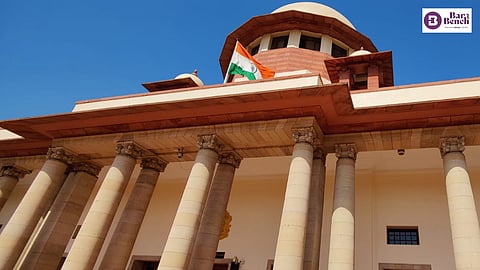
- News
- Columns
- Interviews
- Law Firms
- Apprentice Lawyer
- Legal Jobs
- हिंदी
- ಕನ್ನಡ

A woman journalist has moved the Supreme Court with a plea challenging the practice of Talaq-e-Hasan, by which a Muslim man can divorce his wife by saying the word "talaq" once a month, for three months [Benazeer Heena v. Union of India & Ors].